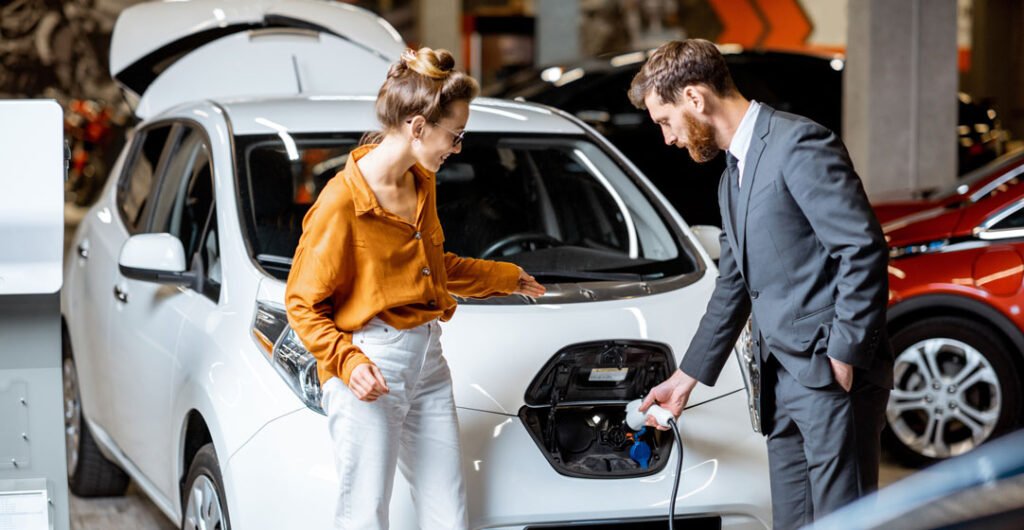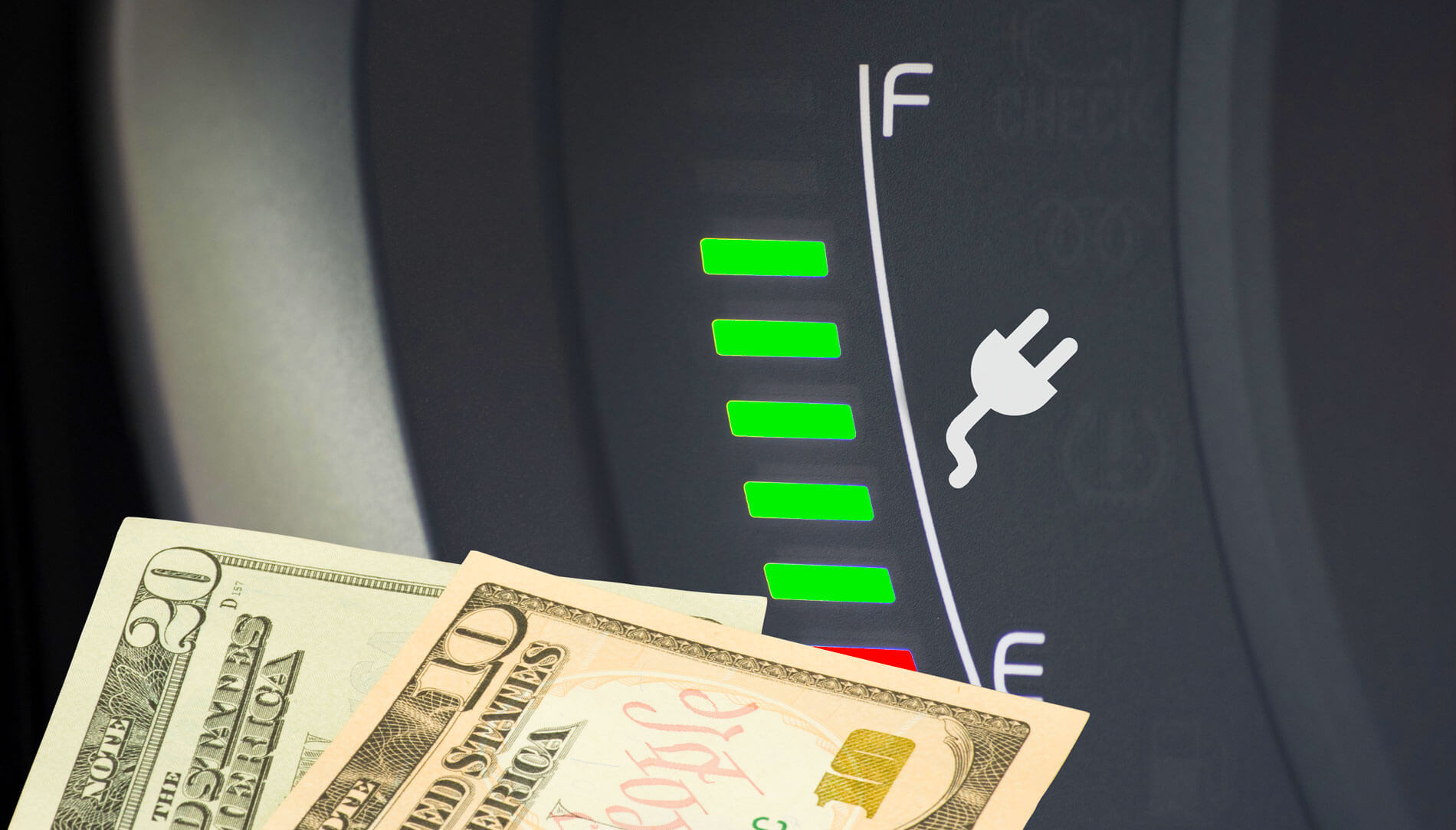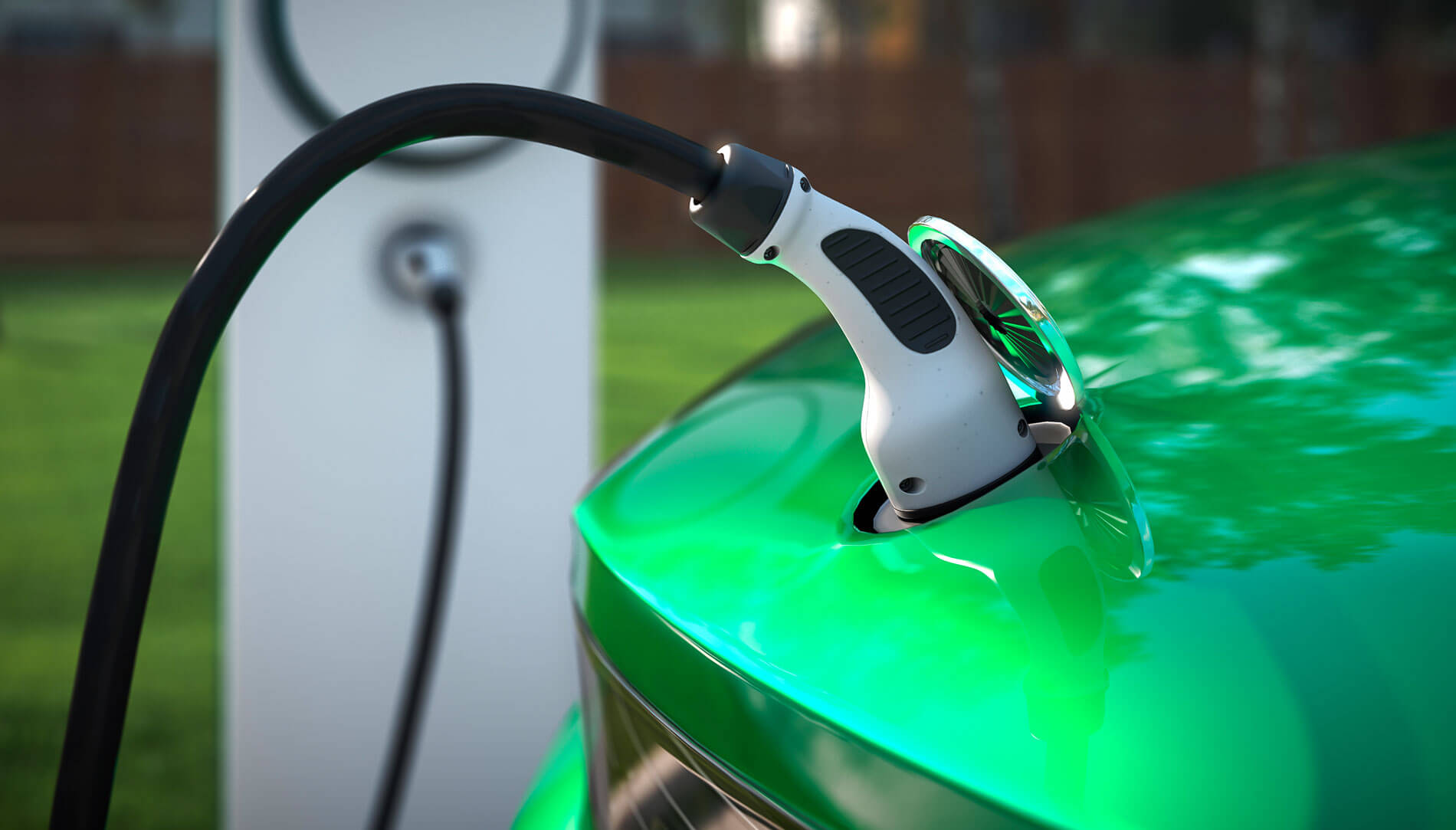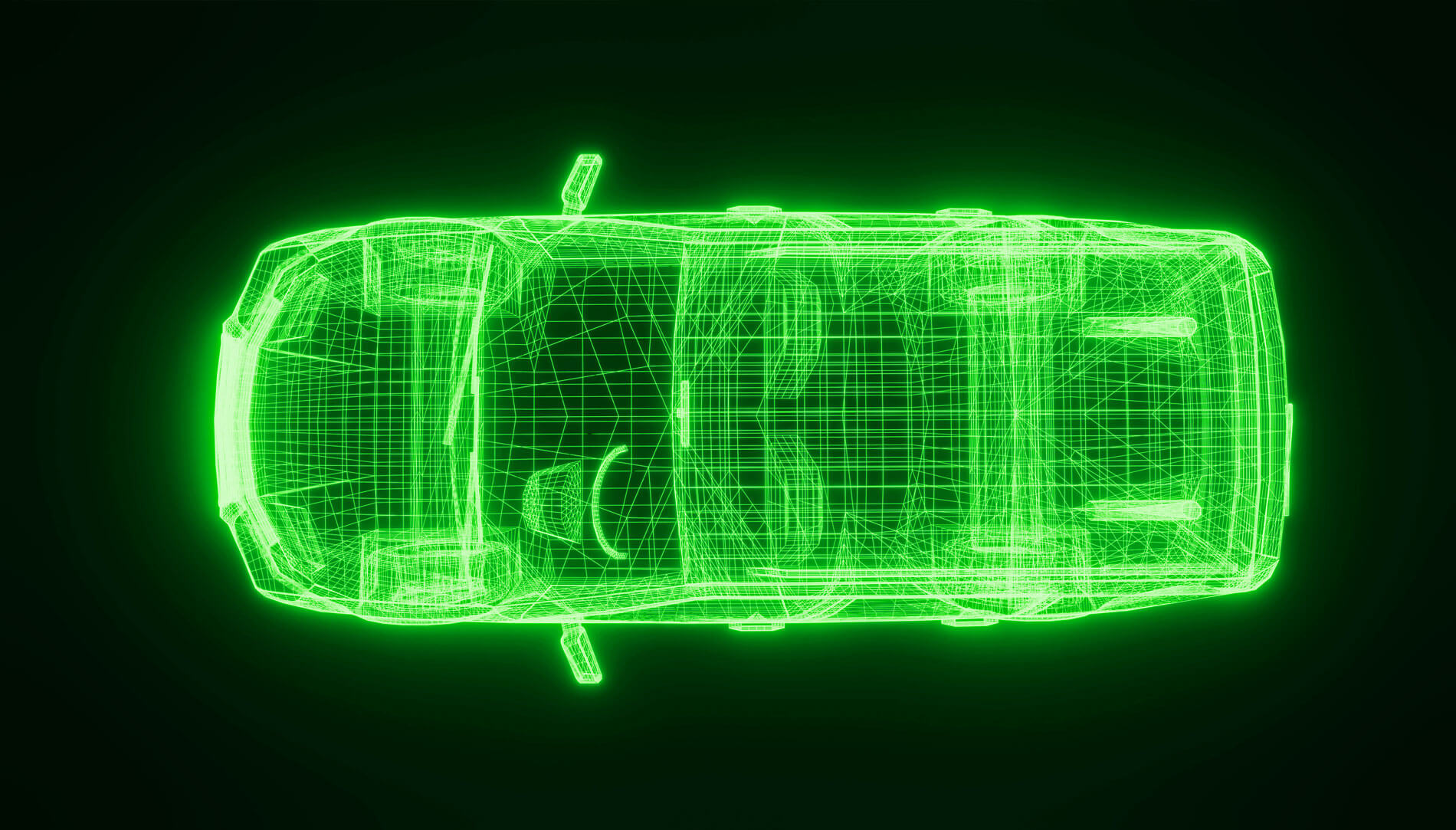What to Consider When Buying an Electric Car
It’s an exciting prospect to go electric car shopping. With so many make and models to choose from, it can also be a little overwhelming. Buying a car is a major investment for all drivers. If you’re thinking about going electric for the first time, you can expect a wide range of new makes and models, with more being unveiled every year. From muscle cars to trucks, and from luxury sedans to SUVs, every year brings new choices.
If you’re in the market for a new ride, how do you choose the best electric car for you? Here are some things to consider as you go electric car shopping.

Electric car shopping: Budget basics
Like with all important purchases, start with how much car you can afford. Prices vary widely, and a lot depends on the make and model.
While luxury car models can run over $100,000, a robust selection of mid-range and affordable electric car brands have been rolled out in recent years. For example, the 2022 Nissan LEAF, MINI Cooper SE and Hyundai Kona Electric brands all start at under $30,000. Plus, it is possible on certain models to get a federal tax rebate of up to $7,500 on a new purchase or $4,000 on a used vehicle, as well as state and local incentives.
An electric car can also save you a considerable amount over its life by plugging in. Also, given that they are simpler machines with far fewer moveable parts, your overall maintenance costs should be lower.
Number crunching: Do the math when buying any car
If you’re primarily motivated by the cost savings from lower fuel and maintenance costs, consider which make and model best meets your needs.
As was mentioned, there’s a wide range of prices. Try comparing apples to apples—compare an electric luxury sedan to an electric luxury sedan. On the plus side of the ledger are the anticipated savings from lower maintenance and home charging. (Keep in mind that home charging using a standard plug is the cheapest option because it requires no modifications to your home.)
In calculating your fuel savings, you’ll have to compare the kilowatt per hour cost of electricity in your area to the average cost of gas. In Washington and Idaho, residents can expect to pay less because of the relatively low cost of energy per kilowatt hour in these states versus the higher-than-average cost of gas.
One option that can lower the initial cost is to buy a used electric car, which is similar to the cost savings for buying a used gas-powered car. Even though electric cars are still relatively new, buying a used model is an option. You can shave thousands of dollars off the purchase price by buying a car that’s only a couple of years old. Plus, buyers of used electric cars can now potentially qualify for a federal tax rebate for the first time.

Range: Going the distance in your electric car
The range of an electric car is another question that buyers are curious about. The maximum range refers to how many miles the car can travel on one complete charge. Electric car range varies tremendously, from under 150 miles to more than 500 miles. The average maximum range is about 250 miles—for Washington drivers, that’s the equivalent of a roundtrip drive between Bellingham and Tacoma.
Opinions differ on how important maximum range is. Although the average commuter travels less than 40 miles per day, most people want an electric car with more range than less. More range, though, comes with a significant cost. An extra 100 miles of range will typically add thousands to the sticker price of the car.
The question of what makes for an ideal range really depends on you, the buyer.
Efficiency: More than miles per gallon
Efficiency is a harder concept to grasp than with gas-powered cars where buyers can just look at the estimated miles per gallon. One easy way that the industry has developed to gauge efficiency is the miles per gallon equivalent or MPGe. While this will be a new term for most people, MPGe means what it says: An electric car estimated at 98 MPGe would get 98 miles per gallon if it were gas powered.
The Department of Energy’s site fueleconomy.gov is a good reference for buyers. Here you can find detailed estimates for MPGe, annual estimated fuel costs and potential fuel savings relative to the industry average. You’ll find estimates for specific brands of full hybrids, plug-in hybrids and all-electric cars. Also, when trying to choose a specific model, don’t forget to check out AAA’s car guide at www.aaa.com/carguide.
Find a car that meets your needs
Car shopping is highly personal. Many people get excited about the accessories, the color scheme and trim, seats, gadgets, etc. (and good for them) but with electric cars, it is also important to ask yourself a basic question: How am I going to use this car?
Electric cars (especially sedans) are ideal city and commuter cars because they can typically be charged at home overnight and their regenerative braking systems (which recapture energy and recharge the battery during braking) make them more efficient in stop-and-go traffic than on the highway. That’s why some drivers use electric cars exclusively in the city.
If you know how you and your family are going to use the car, that can guide your electric car shopping. For example, if the electric car is to be used mostly for commuting, you probably won’t need a long-range car with a heavy battery. If, however, you plan to take the car on several lengthy road trips per year, you may want a car with an extended range. If long-distance driving is a way of life, you might consider buying a hybrid. Most plug-in hybrids have a range of up to 40 miles in all-electric mode for city driving, but also can run on a combination of gas and electricity, or gas only when on long road trips.

Warranties: Don’t forget to read the fine print
Electric car warranties cover the major components of the car, and most are quite generous.
Typically, the warranty on the battery pack is different than other factory warranties on the car. The industry standard for batteries is coverage for eight years or 100,000 miles, but warranties can go to 10 years or 150,000 miles.
Make sure to read the fine print on the warranty (the same applies to gas-powered cars). When you go shopping, ask the salesperson about the warranty.
All batteries degrade over time, which decreases their ability to hold a charge and the range. Many manufacturers guarantee the battery to 60% to 70% retention, whereas some warranties will only replace the battery after total failure.
Electric cars also come with a power train warranty and comprehensive coverage. The power train warranty covers the major components, such as the electric motor, whereas the comprehensive (or “full”) coverage applies to the parts and labor of covered repairs. While the coverage ranges, the most common range for these warranties is three to five years or 36,000 to 60,000 miles.
—Written by Victor Whitman
—Photo illustration by Karen Steichen




